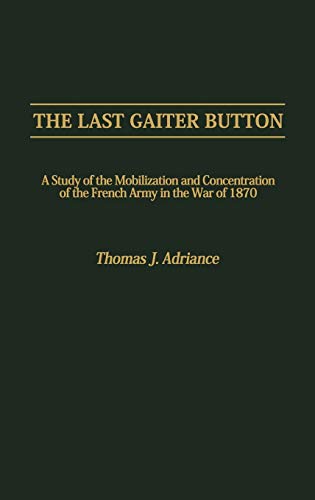
The Austro-Prussian War and Franco-Prussian War
by Charles River Charles River Editors
"The History of the Wars That Led to Prussia's Unification of Germany"
Popularity
2.91 / 5
* A book's popularity is determined by how it compares to all other books on this website.
Where to buy?
Buy from Amazon* If you buy this book through the link above, we may receive a small commission at no extra cost to you.
The Austro-Prussian War and Franco-Prussian War by Charles River Charles River Editors
Details
War:
Franco-Prussian War
Perspective:
Researcher
Biography:
No
Region:
Europe
Page Count:
84
Published Date:
2018
ISBN13:
9781727353853
Description
Main Themes and Topics
The book The Austro-Prussian War and Franco-Prussian War by Charles River Editors delves into the intricate dynamics of European power politics during the 19th century. Central to the story is the rise of Prussia under the astute leadership of Otto von Bismarck, which altered the balance of power established by the Congress of Vienna in 1815. The text explores how Prussia transitioned from being a minor player to a dominant force capable of challenging the traditional Austrian dominance over the German states.
The Austro-Prussian War and the subsequent Franco-Prussian War are meticulously examined as vehicles for German unification. The narrative portrays Bismarck’s strategic mastery, famously encapsulated in his "Blood and Iron" policy, which emphasized military power over diplomatic negotiations. Furthermore, the book scrutinizes the socio-political ramifications within France, including the rise and fall of Napoleon III and the rise of the Third Republic following the military defeats.
Writing Style and Tone
Charles River Editors present the historical account in a clear and engaging manner, making complex political maneuvers and military strategies accessible to readers. Through the inclusion of pictures and extensive resources for further reading, the editors provide a rich, multi-layered perspective of the events. The narrative tone remains educational yet compelling, providing incisive commentary on the historical figures and the broader geopolitical shifts of the era.
Brief Summary
The Austro-Prussian War and Franco-Prussian War recounts the consequential conflicts that marked the late 19th century, leading to the unification of Germany under Prussian dominance. The book opens with an exploration of the power dynamics established by the Congress of Vienna, highlighting how Prussia rose from the shadows of Austria to reshape the German states. Key military engagements, including the battles at Metz and Sedan during the Franco-Prussian War, are detailed extensively.
The narrative explains how Bismarck’s political strategies catalyzed Prussian victories, ultimately unifying Germany. Meanwhile, the internal turmoil within France, marked by Napoleon III’s capture and the establishment of the Third Republic, is portrayed as pivotal to the shifting European order.
Criticism
While the book offers a comprehensive analysis of the military and political developments of the Austro-Prussian and Franco-Prussian conflicts, some readers may find the lack of focus on the social aspects within Prussia and Austria a slight oversight. The editors prioritize the macro-level political narrative over the everyday experiences of individuals, which might leave readers desiring more depth on how these wars affected common people of the time.






